How to Save Money in a Recession
You don’t need an economics degree to realize that the United States economy is quickly approaching its next recession. The warning signs and economic indicators are everywhere. Some say the handwriting is already on the wall, but most people still refuse to see it. At this point, it’s no longer a matter of if, but when. And who’s to say how bad it will be this time around? The U.S. economy is struggling, but we’re all in this together to avoid struggling as much as possible!
Depression vs Recession: Are You Prepared?
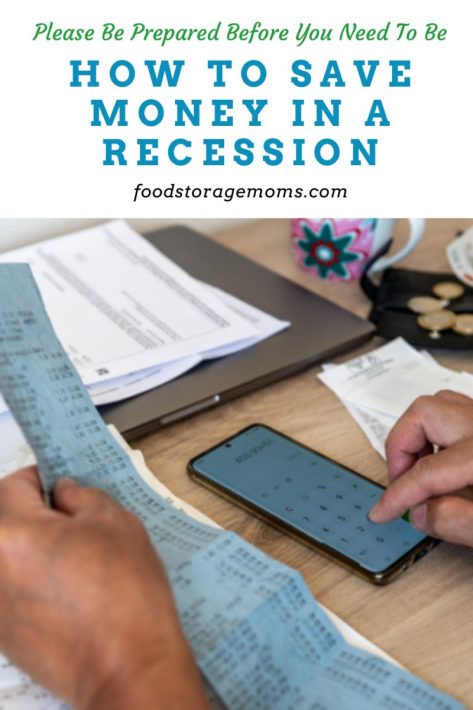
How to Save Money in a Recession
While there’s absolutely nothing you can do to stop the inevitable, you should still focus on saving money any way you can so that your family won’t have to suffer as much when it does strike. I’d like to share with you several ways that you can save money before and during an economic recession.
Create a Budget
For some of you, creating a budget might seem elementary and something you’ve been doing all along, while for others, sitting down and creating a budget is a completely foreign idea to you. Regardless of whichever category you fall into, a budget is a valuable tool that teaches what it costs to run your life. Fortunately, a budget is not some secret math formula that’s difficult to figure out.
All you need to know is what your monthly income is along with all of the expenses that you have for a single month. Once you’ve subtracted your expenses from your monthly income, that’s the remaining money that your family has to live on for the month. Knowing how much money you’re spending every month is VERY helpful!
The next step is to outline where the expenses are going and establish if you want to maintain those amounts as is, try to reduce or eliminate some as you can, and possibly allocate more funds where needed.
Try to Reduce Your Expenses
This one seems obvious, but it’s often overlooked. Take a look at your current expenses and try to find ways that you can reduce them. Do you have movie streaming services or cable subscriptions or gym memberships that you don’t use anymore? If that’s the case, you’re just throwing away hard-earned money and need to cancel them as quickly as you can.
Or perhaps you’re paying unnecessary amounts in areas like meals out or entertainment, your current cellphone, or an internet provider? Maybe it’s time to switch to a more reasonable company or at the very least, call and see if they can get your rates lowered. Most companies are willing to work with you because they don’t want to lose a valued customer. We all have essential expenses as part of our monthly living expenses, but we also have areas that need to be looked at and possibly eliminated.
Utilities are another area to evaluate. Can you set your thermostat lower in the winter and higher in the summer to cut down on heating and cooling costs? Do you try to turn those lights out when you leave the room? Would using electric blankets in bedrooms be more cost-effective than heating all the bedrooms each night?
Eliminate Your Debt
When interest rates start to climb as they’ve been doing based on actions by the Federal Reserve, so does the cost of those debts you owe. The more money that you have to put toward your credit cards and loan payments, the less you’re able to save for when you’ll really need it. If you’re in over your head in debt, I’d encourage you to listen to what financial coach Dave Ramsey has to say about it. He introduces the “debt snowball” method to help people get out of debt quicker, and it actually works.
Some of you may not be able to be completely debt-free before a recession hits. If that’s the case, you may want to look into a low-interest, fixed-rate offer. Consolidating your debt can help save you money due to a lower interest rate and extending the payment term. You have to be extremely careful about which company you go with because there are a lot of scams out there.
Some of you may have been affected by recent layoffs, even at large firms like Amazon, Facebook, and others. You may be able to get some concessions from your local banks, credit unions, and even national credit care firms based on your situation. There’s no harm in asking and they often would rather help you make ends meet than lose out on the total debt owed. In a time of economic uncertainty, we all need to be flexible.
Eat at Home More
Going out to eat is one of the biggest budget killers. It’s just been made too easy and convenient for us to drive through those easy-access drive-thrus. So when you feel like you don’t have enough time or energy to cook dinner, think about this. Eating out costs approximately two to three times more than cooking at home, depending on the types of foods you usually eat. That being said, eating in can be a great way for your family to save money during a recession.
- 24 Essential Homestead Skills You Need to Master
- 20 Staple Pantry Items for Making Cheap Meals
- 25 Budget-Friendly Meals For Dinner
Reduce Your Energy Cost
You can reduce your energy cost by making a few small changes to your home. Try turning off lights, or unplugging appliances and devices when you’re not using them. Those TVs, laser printers, and laptops all use some power even when in sleep mode. Consider using LED lightbulbs, and keep the temperature at a reasonable level throughout the day. Sealing your windows and doors during both hot and cold weather really helps. During really cold weather you can hang blankets in the windows to help insulate. Also, during the sunny part of the day having blinds and curtains open can provide some natural heat for your home on cold days and save you on expenses in the long run.
- 9 Ways to Stay Warm Without Electricity
- When You Lose Electricity For Days
- 10 Ways to Stay Cool Without Electricity
Set Up an Emergency Fund
It’s always important to have some money set aside for an emergency, but it’s even more pressing during an economic recession. Nobody knows how long a recession will last or what kind of dire straits you may find yourself in if it drags on. With this in mind, I’d suggest setting up an emergency fund and putting aside at least a few months of your salary in case you lose your job or face something like a car repair. This can relieve a lot of stress and hold you over until you’re able to find another job or find a new income source to sustain yourself and your family.
That fund should be maintained in liquid form like a high-yield or regular savings account, checking account, or even bonds that can be accessed and cashed easily. Having an emergency fund should be an important part of your overall financial goals. High inflation seems to be the norm right now, and economic activity over consecutive quarters is such that the Federal Reserve will continue to pursue ways to reduce it.
Try to keep purchases within reason even though you may see some retail sales at discounts. Consumer spending on your part is one thing you can control when it comes to wants rather than true needs. Cash flow is critical right now, so the joy from new things in the short term won’t last.
- 25 Insanely Smart Ways To Save Money Cooking
- 9 Ways to Make Easy Extra Money
- How to Save Time and Money with Grocery Shopping
Now is Not the Time to Make Big Purchases
Maybe you’re thinking about buying a new home or car soon. Or some of you may even be planning a luxury dream vacation that’s all-inclusive. As painful as it may be for some of you to hear, now is not the time to be emptying out your bank account for such purchases. The last thing that you want is to be even more strapped for cash than you already are. Financial stability should be your focus so long-term financial security can be realized.
Find Yourself a Side Hustle
If you’re looking for a way to earn some extra funds, then look no further than the side hustle for additional income. A side hustle is any form of part-time job that you do outside of your day job. This could be anything from freelance writing and graphic design to taking on odd jobs such as pet sitting or lawn care. There’s always something out there that you can do if you put in a little effort. And with the money that you earn, you could put it towards debt or an emergency fund to help get your family through tough times. Worst-case scenarios involve you stepping outside of your comfort zone and finding a side hustle you really like! 7 Smart Tips for Surviving a Recession
Delay Your Retirement
Many of you may be thinking about retiring within the next year or so as you approach retirement age. You may not like what I have to say, but you may want to push that date back until the economy starts to rebound. That way you’re not dipping into your retirement funds early, leaving you stretched thin for cash several years down the road. Delaying your retirement can help you save more for retirement and give you the confidence to know that your future is secure, even in times of economic hardship.
We all get tired and really look forward to those retirement dreams of golf, beach, grandkid visits, and more. Take some time to research how much more you can receive in social security benefits by waiting and working until you’re 70 years old. You’ll be surprised what the difference in monthly income will be rather than retiring at 62!
What can slow you down in a recession?
- High-interest debt
- Credit card debt
- Unexpected expenses
- A personal loan you may have
- Having student loans
What can help you to save money in a recession?
- Start with lowering your interest rate on debt (in order to eliminate it faster)
- Discretionary spending
- Getting a side gig
- Earning extra income where you can
- Staying out of your cash reserves
- Having 3 months’ worth of emergency savings put away
- Talk to a financial advisor
- Balance transfer credit card with zero interest for a few months
More Tips for How to Save Money in a Recession
- 20 Tips From Grandma to Survive A Depression
- 15 Ways to Survive a Depression
- Build Your Own Great Depression Pantry
Final Word
With these tips, I’m hoping that you’ll be able to come out of a recession unscathed. Saving money and being prepared can mean the difference between financial ruin and stability during an economic crisis. Now is the time to save, so don’t wait until it’s too late! Can you think of any other simple ways to save money before and during a recession? Now is the perfect time to follow these money-saving tips, so that you don’t find yourself in a tough financial situation. May God Bless this world, Linda
Copyright Images: Person Using a Calculator AdobeStock_511443111 by Ming

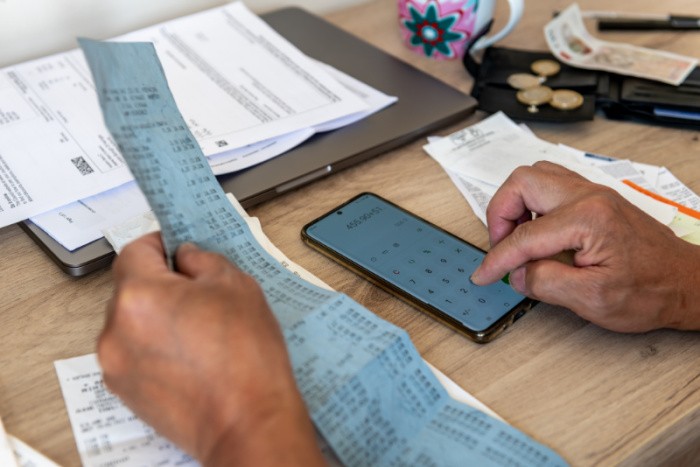

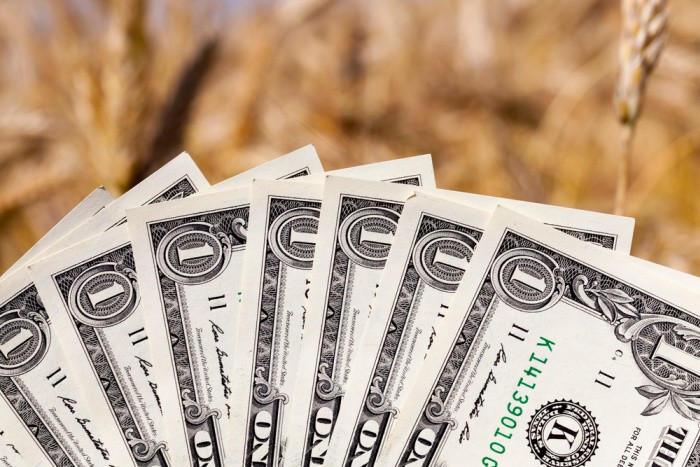
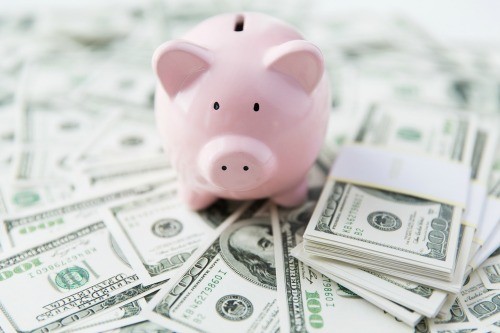


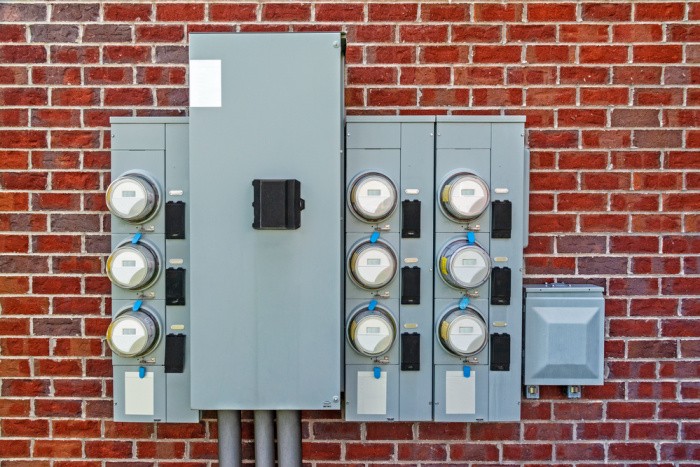

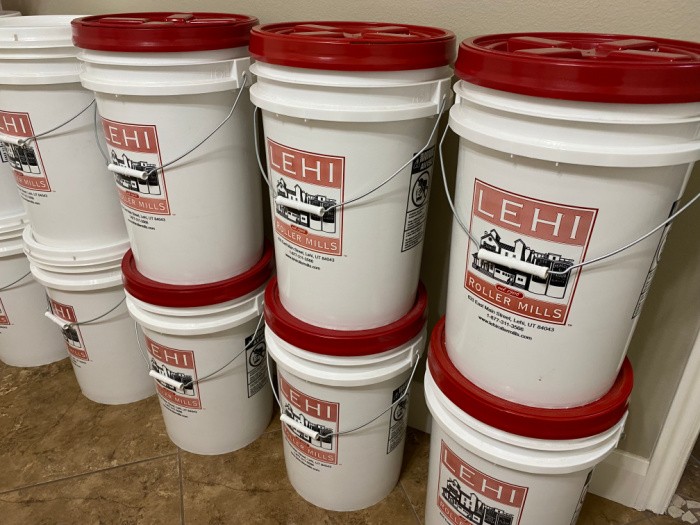







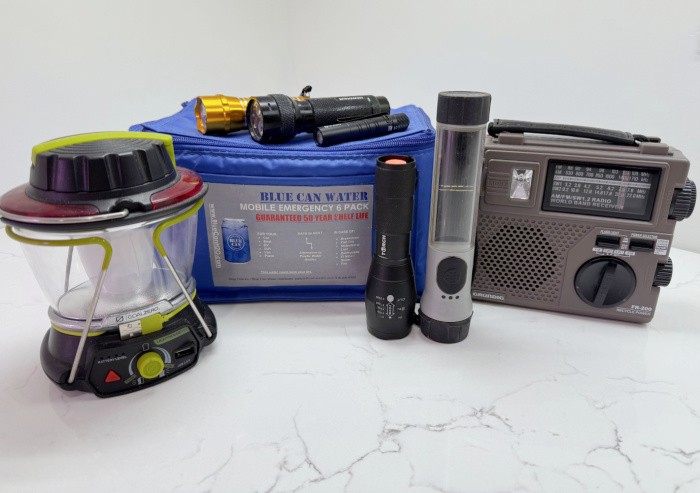
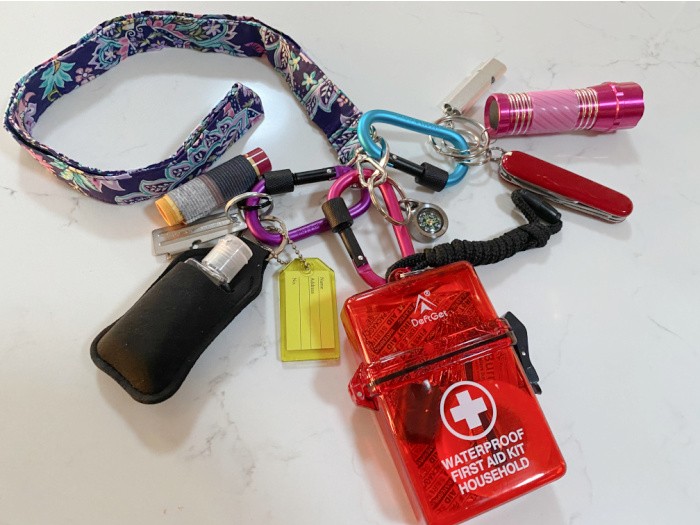



Linda, before we got our new energy efficient windows I’d put 2″ styrofoam between the glass and the blinds during the summer. Made the house dark inside but saved us a lot of money during our hot AZ summers.
And growing your own food is like growing your own money, so start a garden, maybe get some chickens and rabbits.
Hi Ray, I love your tips as always. I love your phrase “And growing your own food is like growing your own money, so start a garden, maybe get some chickens and rabbits” LOVE LOVE LOVE IT! Linda
The best way for us to save money? Me staying out of the fabric stores!
Hi Robbie, you make such beautiful quilts!!! I get it, I totally understand! LOL! Linda
Didn’t quite follow your suggestions about not having large expenses, since we finally got around replacing our vinyl siding which was starting to blow free during windstorms. And during this process we had the contractor install 3/4″ insulating boards under the new siding as well as replacing our old upstairs windows with triple pane windows. We’re past the worst of the heating season now, but it will still help with keeping the house cool this summer and the real savings will be next winter (which probably when the recession will be in full bloom.) Doing this ate into savings a bit, but we knew it was needed and had been setting aside cash for it for a while now, and given the variability of energy prices it was worth it to us to pull the trigger this spring.
Otherwise have been reducing expenses and making sure we’re balanced in our preps so if we need to rely on them if/when things go sideways (economically speaking) we’ll be ok.
Thanks for the articles to keep us and our families as safe as we can in these crazy days.
HI Dmwalsh, I actually applaud you for fixing up your house to save you money. When you can repair and install new triple pane windows and new siding with 3/4 insulating boards, that’s a winner for me. It’s all about saving money with utilities and we know they will continue to go up. Thank you for your kind words, Linda
We spend very little money. Our youngest daughter and her husband built a beautiful new home 5 years ago. Unfortunately, the taxes, the regulations and the cost of everything in New York State, have them selling their home and moving into an apartment, short term while they decide what state to make their new home. While my heart breaks to have them leave, they have to do whatever is best for their future.
Hi Chris, this is sad. I watched Kevin O’Leary (Shark Tank & Investor in Companies) today. He talked about the worst states to live in because of taxes, policies, and crime. He said it doesn’t have anything to do with which political side you believe in. It’s common sense. He has pulled all of his investments/companies out of New York, I hope I’m remembering everything he said. He stated the worst states were New York, California, New Jersey, and Massachusetts to raise a family in because of the policies and taxes in those states. Crime as well. He talked about a store he went to in LA California to get some toothpaste and it was behind a locked glass cabinet. He mentioned some of the best states to live in to raise a family and not be taxed because your company is successful. He will not have the families that work for his companies in any of these states that are overtaxed and are not safe to raise a family. WOW! It was awesome! I hope your daughter and husband find a safe place to live that is reasonable in the cost of housing with state policies, taxes, and less crime. Linda
Linda, Any chance you remember the states he recommended? Their plan is travel this next year, to find the best place for them. I know they are looking for states that will not tax their government pensions. They would like us to follow them, but I don’t know if our health would allow that to happen.